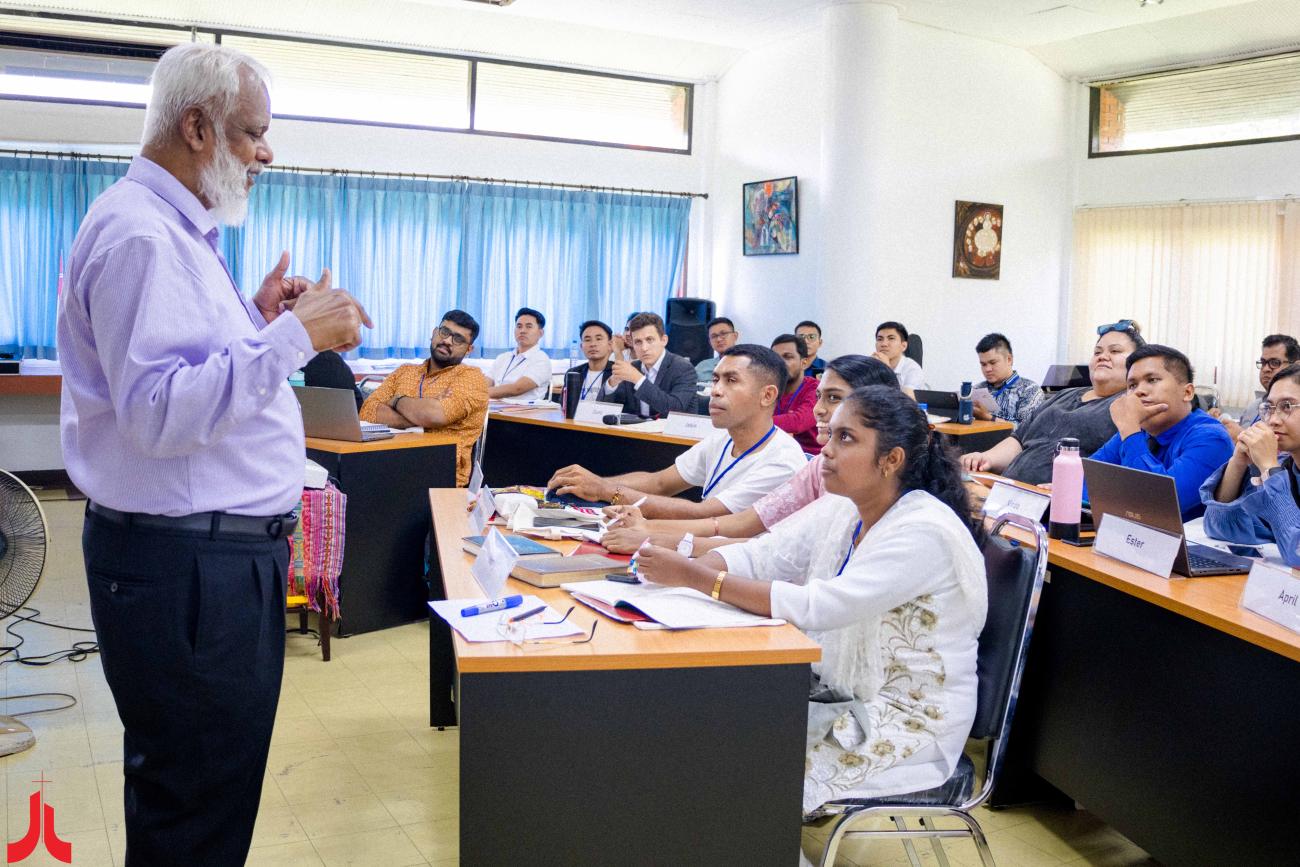Asian Ecumenical Institute (AEI) 2025 begins at CCA headquarters

Rev. Prof. Dr M. O. John addressing AEI students
Chiang Mai, Thailand: The Asian Ecumenical Institute (AEI) 2025, the annual ecumenical training programme of the Christian Conference of Asia (CCA), commenced at the CCA headquarters on the Payap University campus in Chiang Mai, Thailand.
The AEI-2025 cohort comprises 25 young ecumenists from across Asia.
The theme of this year’s AEI, being held from 4 to 30 August 2025, is “The Nicene Creed: Enduring Faith and Embracing Unity”.
The theme, which holds special significance as 2025 marks the 1700th anniversary of the First Council of Nicaea, will help nurture a spirit of unity that transcends theological divisions. Throughout the programme, participants will reflect on the theological foundations of the Nicene Creed and reaffirm their faith in the Triune God.
The opening worship provided an opportunity for participants from diverse backgrounds to affirm their shared faith and renew their commitment to serving God and humanity through a witness of justice and peace. Rev. Jung Eun (Grace) Moon, Programme Coordinator of CCA, welcomed participants at the opening session.
Rev. Prof. Dr M. O. John of the Malankara Orthodox Syrian Church led the introductory thematic sessions on “The Nicene Creed: Enduring Faith and Embracing Unity,” setting the tone for the month-long training and discussions. He offered historical insights into the First Council of Nicaea and its role in producing the Church’s first formal confession of faith. Emphasising the legacy of the early Church fathers, he reminded the participants of the importance of continuing to confess and declare allegiance to the Creed and faith.
In the weeks ahead, a diverse group of internationally recognised theologians, biblical scholars, ecumenical leaders, and social scientists will facilitate academic sessions, offering a range of perspectives to enrich the participants’ ecumenical and theological formation.
For photos of the Asian Ecumenical Institute 2025, please click here.











